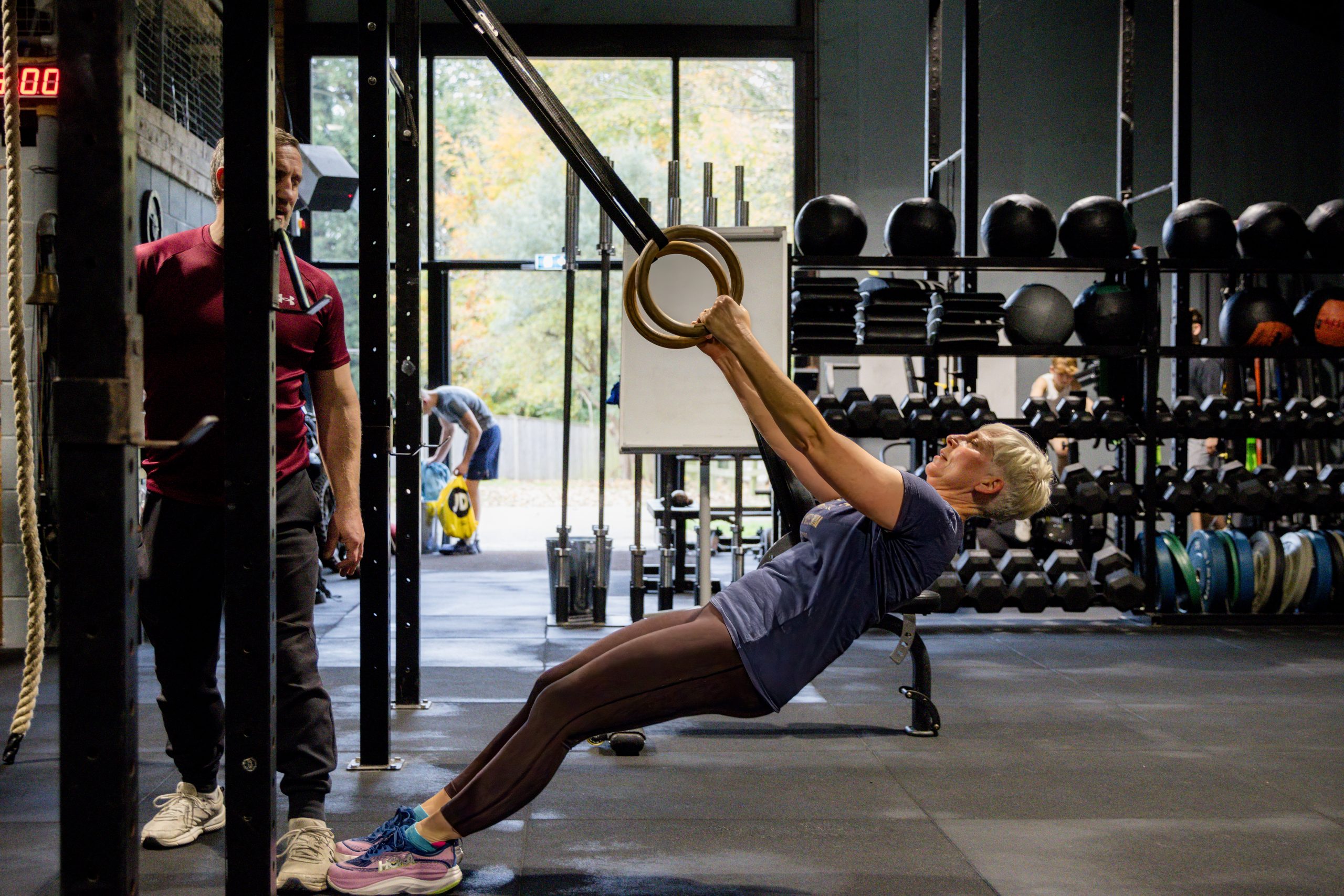So, you’ve been thinking about starting a resistance training program but you’ve got a fear of strength training. You know you ought to be stronger than you and that it’s good for your health. Maybe you’ve seen an fantastic physique on tv or someone you know and thought, “I want that!” Or perhaps you’re simply looking to feel stronger and more confident in your own skin.
But let’s be honest, starting anything new can be daunting. And when it comes to strength training, those feelings of apprehension can be even stronger. Your fear of the gym might be centred around:
- Injury: Lifting heavy weights can seem intimidating, and the fear of injury is real. Perhaps you’ve heard some horror stories.
- Looking silly: Fear of strength training might stem from worry about looking awkward or inexperienced.
- Not being strong enough: You’re starting from scratch and that everyone else in the gym is already miles ahead.
- Lack of knowledge: It’s a minefield and there are so many opinions out there. Figuring out where to begin and what exercises to do can feel overwhelming.
These are all valid concerns, but here’s how and why they shouldn’t stop you from pursuing your fitness goals. Trust us, we all have these concerns to varying degree’s, no matter our experience and training history.
Finding Your Strength: Overcoming your fear of strength training
- Start Small and Slow: The key to overcoming apprehension is to start small and gradually increase the intensity. Get a small win, and then another and so on. Begin with bodyweight exercises like squats, lunges, and push-ups. As you get stronger, you can gradually introduce added resistance.
- Focus on Proper Form: Proper form is crucial for preventing injuries and ensuring that you’re effectively targeting the intended muscles. Watch instructional videos, use a mirror to observe your form, or consider working with a qualified personal trainer. NK Fitness pride themselves on helping clients build confidence and competence when it comes to strength training, overcoming fear of the gym.
- Find a Supportive Environment: Look for a gym or fitness studio with a welcoming and inclusive atmosphere. This is so important, as the encouragement and support of others can be very powerful. Just look at the ‘community’ feel of well run Crossfit Gyms, such as Gainline located in Ascot. Consider joining a group fitness class or finding a workout buddy – you don’t have to be on your own.
- Educate Yourself: Learn about the basics of strength training. You don’t need to be an expert but understanding the basics of what and why you’re doing it can really help. There are countless resources available online and in libraries. The American College of Sports Medicine (ACSM) and the National Strength and Conditioning Association (NSCA) are excellent sources of credible information.
- Celebrate Small Victories: Acknowledge and celebrate your progress, no matter how small. This will help to boost your confidence and keep you motivated.
- Remember That Everyone Starts Somewhere: Everyone was a beginner at some point. Don’t compare yourself to others in the gym. Focus on your own journey and celebrate your own accomplishments. As we’ve already said, even the best athletes expereince similar apprehension to some extent.
Resources to help you over the fear hurdle
- YouTube: A treasure trove of fitness videos, from beginner workouts to advanced techniques.
- Fitness Apps: Apps like Nike Training Club, Fitbod, and Freeletics provide personalized workout plans, video demonstrations, and progress tracking.
- Books: There are countless books available on strength training, from beginner guides to advanced techniques.
Overcoming apprehension is a journey, not a destination. Be patient with yourself, celebrate your progress, and remember that consistency is key. With dedication and the right approach, you can achieve your fitness goals and feel stronger and more confident than ever before.
Disclaimer: This information is for general knowledge and informational purposes only and does not constitute medical advice. Consult with a healthcare professional before starting 1 any new fitness program.
